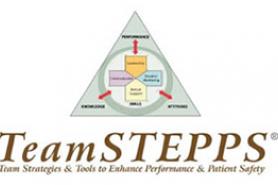Are your briefs anything but brief? Most organizations hold briefs, stand-up meetings or a team meeting by some other name. While important for sharing strategy, they are often time consuming due to lack focus. TeamSTEPPS® recommends using a checklist to help keep your briefs brief and effective.
TeamSTEPPS® suggests a brief checklist is like the pre-flight checklist used in aviation. It ensures the key information is covered each time. After gathering the team, the leader uses the checklist to facilitate discussion. The list helps the leader keep discussion focused which can improve the outcomes from the meeting and shorten duration. The use of a consistent checklist at each brief also creates a shared expectation among the team. When
“extra” stuff that is not relevant to the meeting goals comes up, the checklist can bring the group back to task.
Some suggested questions to cover in the brief include.
- Who is on the team?
- Do all members understand and agree on goals?
- Are roles and responsibilities understood?
- What is the plan of care?
- What staff are available?
- What does the team workload look like?
- What resources are available?
Every organization’s checklist will look different based on goals and organizational culture. The checklist may even look different between work areas. For example, the checklist in an area focused on rehab my have content that differs from an area focused on dementia care.
To get started using briefs, gather a team and work backwards. First, discuss the outcomes you want to see from the use of briefs. Use those outcomes to develop goals for the briefs then use the goals to create a checklist. Once the checklist is ready team leaders can start using it to facilitate briefs.





